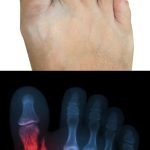
Contents
Augmentin (Amoxicillin and Clavulanic Acid): Side Effects, Warnings, and Drug Interactions
Augmentin contains a penicillin antibiotic and a beta-lactamase inhibitor used to treat various infections, such as middle ear infections, tonsillitis, throat infections, bronchitis, sinusitis, and pneumonia. It is also effective against urinary tract infections and skin infections.
Common side effects of Augmentin include abdominal discomfort, bloating, diarrhea, gas, headache, heartburn, nausea, vomiting, bloody or prolonged diarrhea, easy bruising or bleeding, reversible hepatitis, rash, and allergic reactions.
Serious side effects of Augmentin include seizures, severe allergic reactions, low platelet or red blood cell count, and pseudomembranous colitis.
Use of Augmentin in pregnant women has not been well studied. Penicillins are generally safe for use in pregnant women who are not allergic. Augmentin is excreted in breast milk and may cause diarrhea in infants.
Important Side Effects of Augmentin
Common side effects include:
- Abdominal discomfort
- Bloating
- Diarrhea
- Gas
- Headache
- Heartburn
- Nausea
- Vomiting
Other important side effects include:
- Bloody or prolonged diarrhea
- Easy bruising or bleeding
- Reversible hepatitis
- Rash
- Allergic reactions
Serious but rare reactions include seizures, severe allergic reactions, and low platelet or red blood cell count.
Antibiotics can disrupt the natural bacteria balance in the colon, leading to overgrowth of harmful bacteria such as Clostridium difficile, which causes inflammation of the colon (pseudomembranous colitis). If you experience signs of pseudomembranous colitis after taking Augmentin, such as diarrhea, fever, abdominal pain, or shock, contact your physician immediately.
People who are allergic to cephalosporin antibiotics may or may not be allergic to penicillins.
Side Effects of Augmentin in Healthcare Professionals
The following side effects are discussed in more detail in other sections:
- Anaphylactic reactions
- Hepatic dysfunction
- CDAD
Clinical Trial Experience
The most frequently reported adverse reactions in clinical trials were diarrhea/loose stools (9%), nausea (3%), skin rashes and urticaria (3%), vomiting (1%), and vaginitis (1%). Less than 3% of patients discontinued therapy due to adverse reactions. The overall incidence of adverse reactions, particularly diarrhea, increased with the higher recommended dose. Other less frequently reported adverse reactions (
In pediatric patients, a clinical trial was conducted comparing two dose regimens of Augmentin in the treatment of acute otitis media. The adverse reactions observed were similar to those noted above, with differences in rates of diarrhea, skin rashes/urticaria, and diaper area rashes.
Postmarketing Experience
In addition to adverse reactions reported in clinical trials, the following side effects have been identified after postmarketing use of Augmentin. Due to the voluntary reporting and unknown population size, the frequency of these events cannot be determined. These events have been included due to their seriousness, reporting frequency, or potential causal connection to Augmentin.
Gastrointestinal
Indigestion, gastritis, stomatitis, glossitis, black “hairy” tongue, mucocutaneous candidiasis, enterocolitis, and hemorrhagic/pseudomembranous colitis. Pseudomembranous colitis symptoms may occur during or after antibiotic treatment.
Hypersensitivity Reactions
Pruritus, angioedema, serum sickness–like reactions, erythema multiforme, Stevens-Johnson syndrome, acute generalized exanthematous pustulosis, hypersensitivity vasculitis, and cases of exfoliative dermatitis (including toxic epidermal necrolysis).
Liver
Hepatic dysfunction, including hepatitis and cholestatic jaundice, increased levels of liver enzymes, bilirubin, and alkaline phosphatase. These reactions are more common in the elderly, males, or patients on prolonged treatment. The hepatic dysfunction, which may be severe, is usually reversible. Deaths have been reported.
Renal
Interstitial nephritis, hematuria, and crystalluria have been reported.
Hemic And Lymphatic Systems
Anemia, thrombocytopenia, eosinophilia, leukopenia, and agranulocytosis. Thrombocytosis was noted in less than 1% of patients treated with Augmentin. Increased prothrombin time has been reported in patients receiving Augmentin and anticoagulant therapy concomitantly.
Central Nervous System
Agitation, anxiety, behavioral changes, confusion, convulsions, dizziness, insomnia, and reversible hyperactivity have been reported.
Miscellaneous
Tooth discoloration (brown, yellow, or gray staining) has been reported, primarily in pediatric patients. Discoloration can be reduced or eliminated with brushing or dental cleaning.
Drug Interactions with Augmentin
Probenecid
Probenecid decreases the renal tubular secretion of amoxicillin but does not affect the excretion of clavulanic acid. Concurrent use with Augmentin may increase and prolong blood concentrations of amoxicillin. Coadministration of probenecid is not recommended.
Oral Anticoagulants
Abnormal prolongation of prothrombin time has been reported in patients receiving amoxicillin and oral anticoagulants. Monitoring should be undertaken when anticoagulants are prescribed with Augmentin. Adjustments in the anticoagulant dose may be necessary.
Allopurinol
The concurrent administration of allopurinol and amoxicillin increases the incidence of rashes compared to amoxicillin alone. The cause of this increased risk is unknown.
Oral Contraceptives
Augmentin may affect intestinal flora, leading to reduced efficacy of combined oral estrogen/progesterone contraceptives.
Effects on Laboratory Tests
High urine concentrations of amoxicillin may result in false-positive reactions when testing for the presence of glucose in urine. Glucose tests using enzymatic glucose oxidase reactions are recommended to avoid this effect.
Following administration of amoxicillin to pregnant women, there may be a temporary decrease in plasma concentration of certain hormones.
Summary
Augmentin contains a penicillin antibiotic and a beta-lactamase inhibitor used to treat infections. Common side effects include abdominal discomfort, bloating, diarrhea, gas, headache, heartburn, nausea, vomiting, bloody or prolonged diarrhea, easy bruising or bleeding, reversible hepatitis, rash, and allergic reactions.
Augmentin contains a penicillin antibiotic and a beta-lactamase inhibitor used to treat infections. Common side effects include abdominal discomfort, bloating, diarrhea, gas, headache, heartburn, nausea, vomiting, bloody or prolonged diarrhea, easy bruising or bleeding, reversible hepatitis, rash, and allergic reactions.


